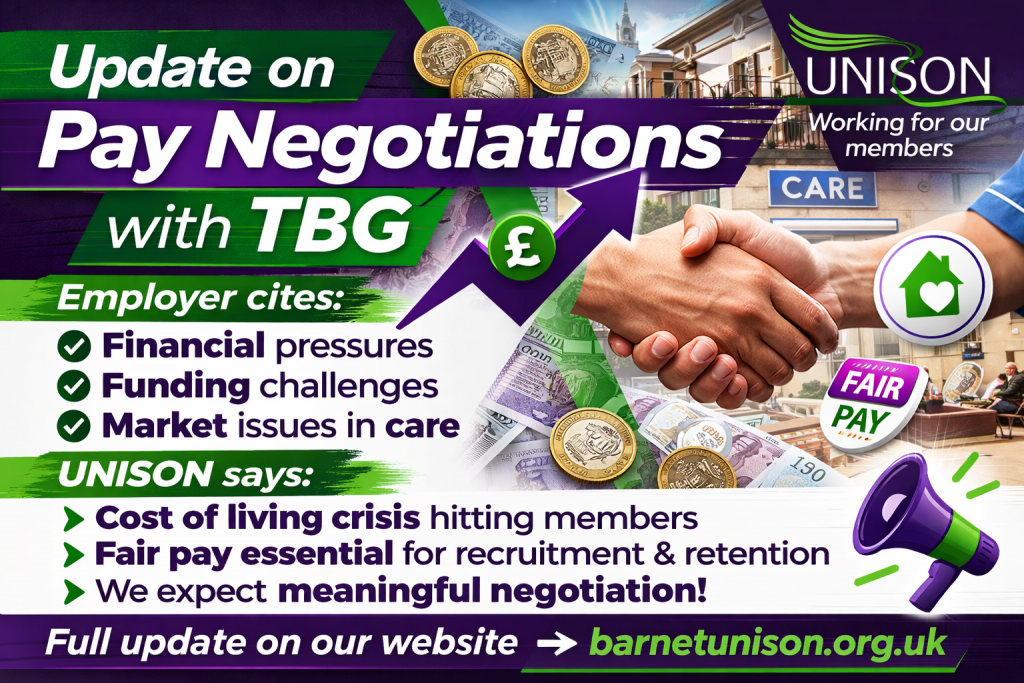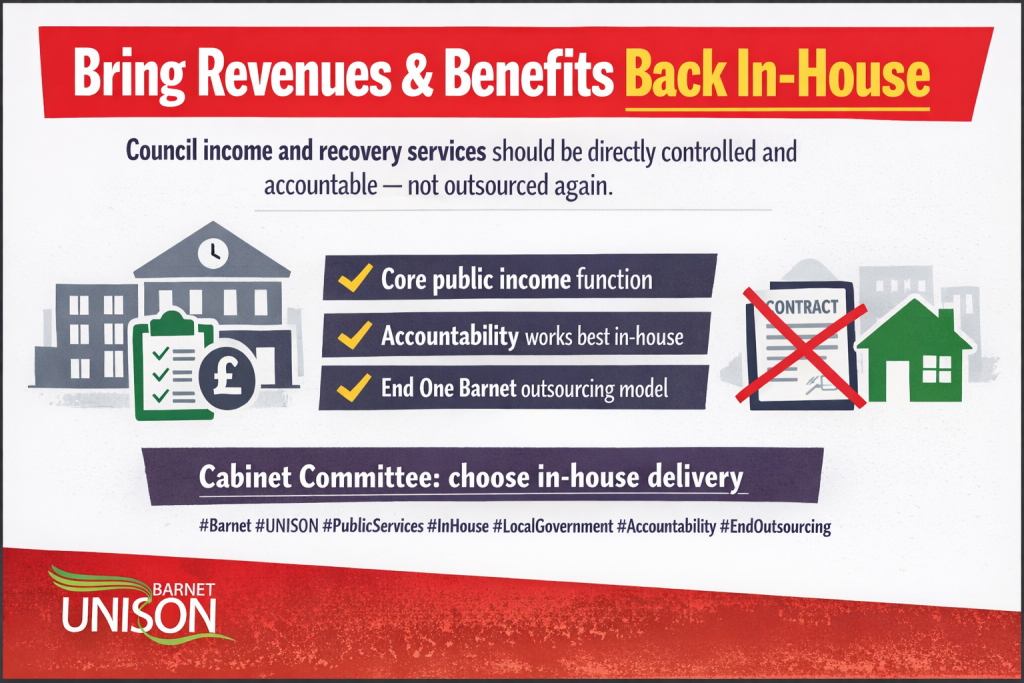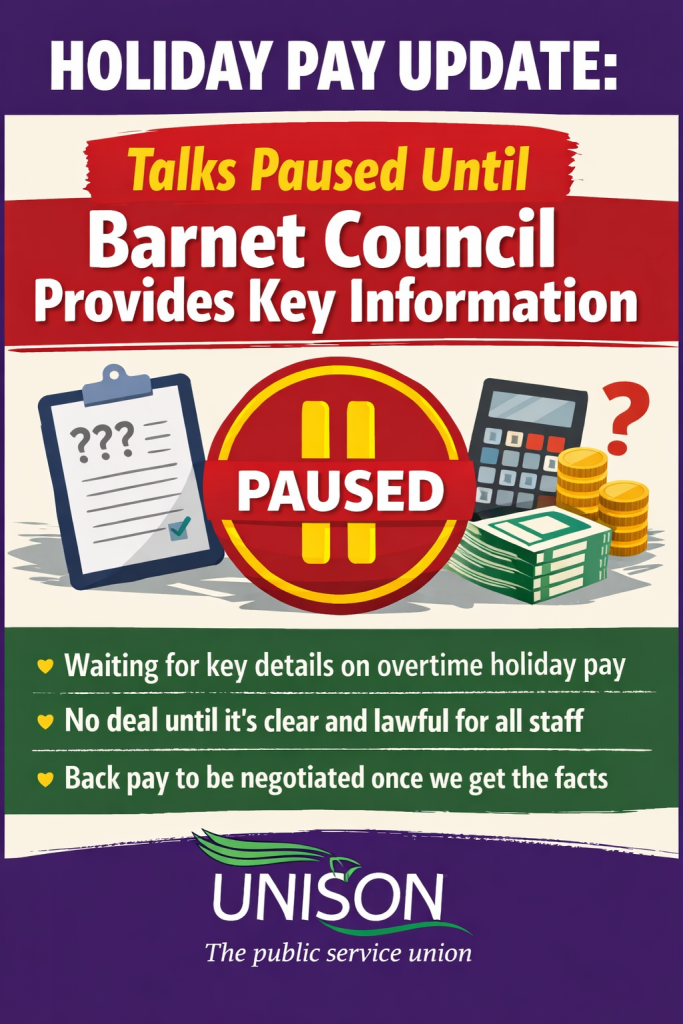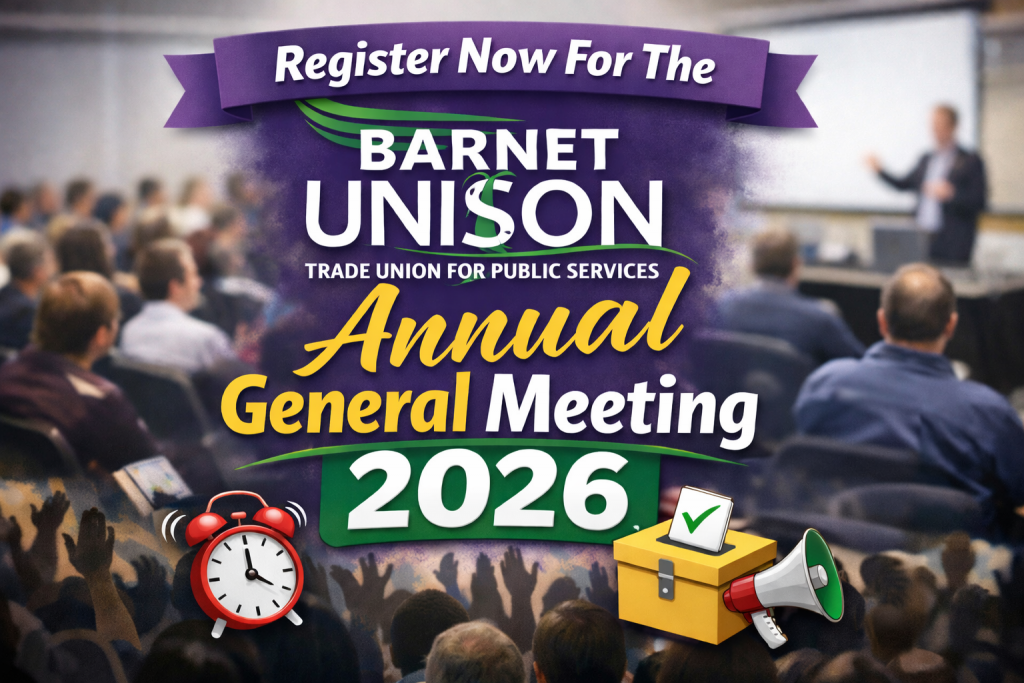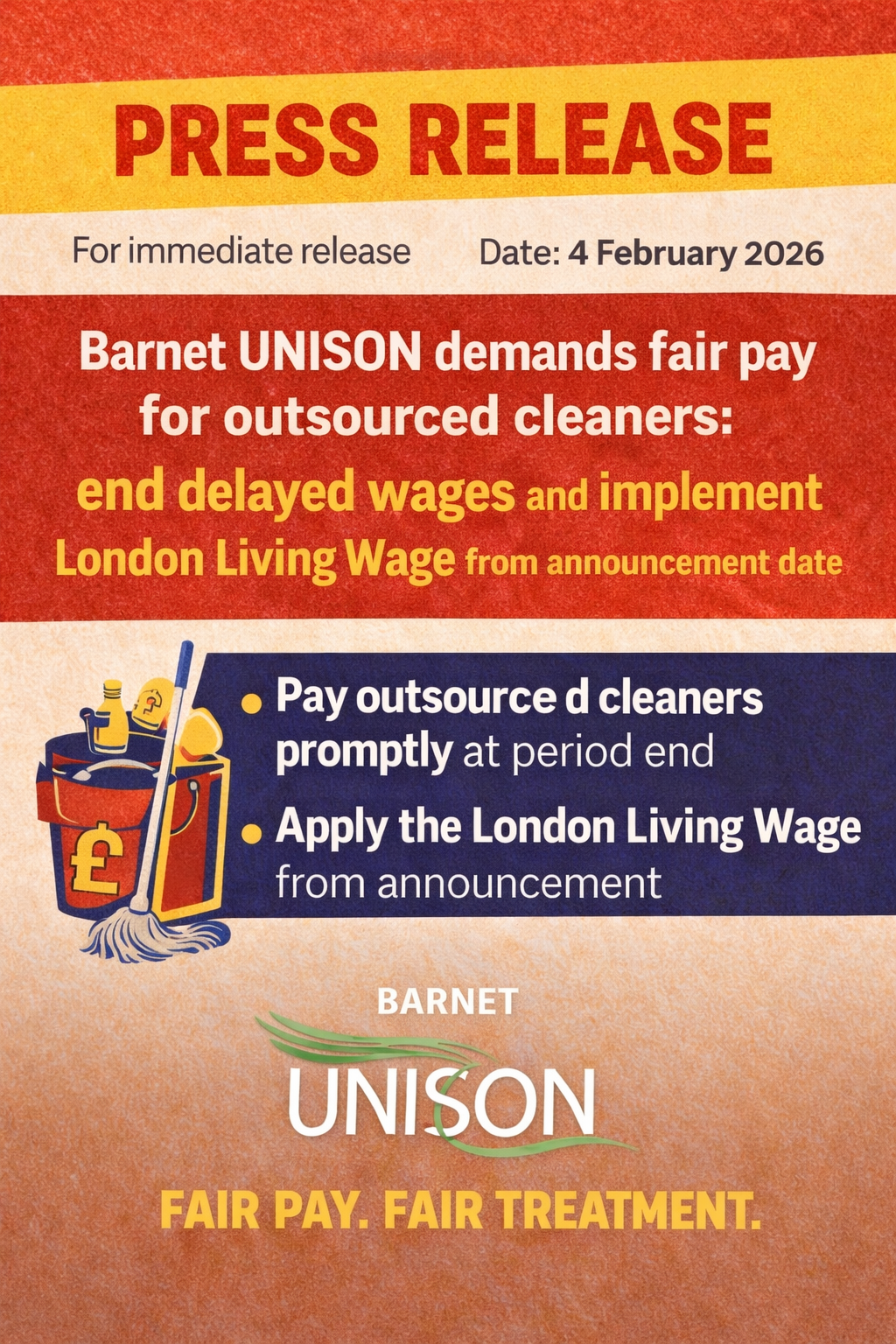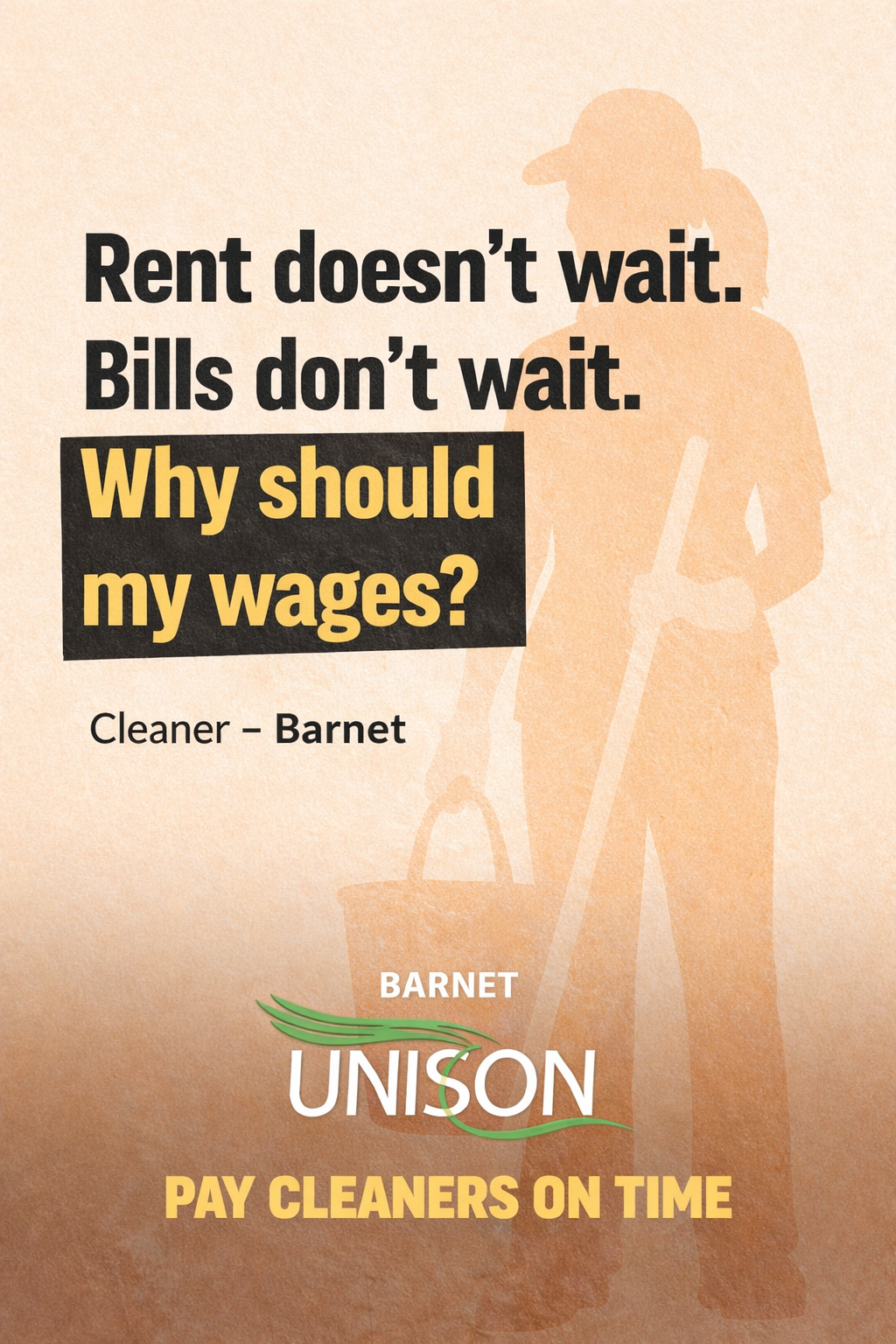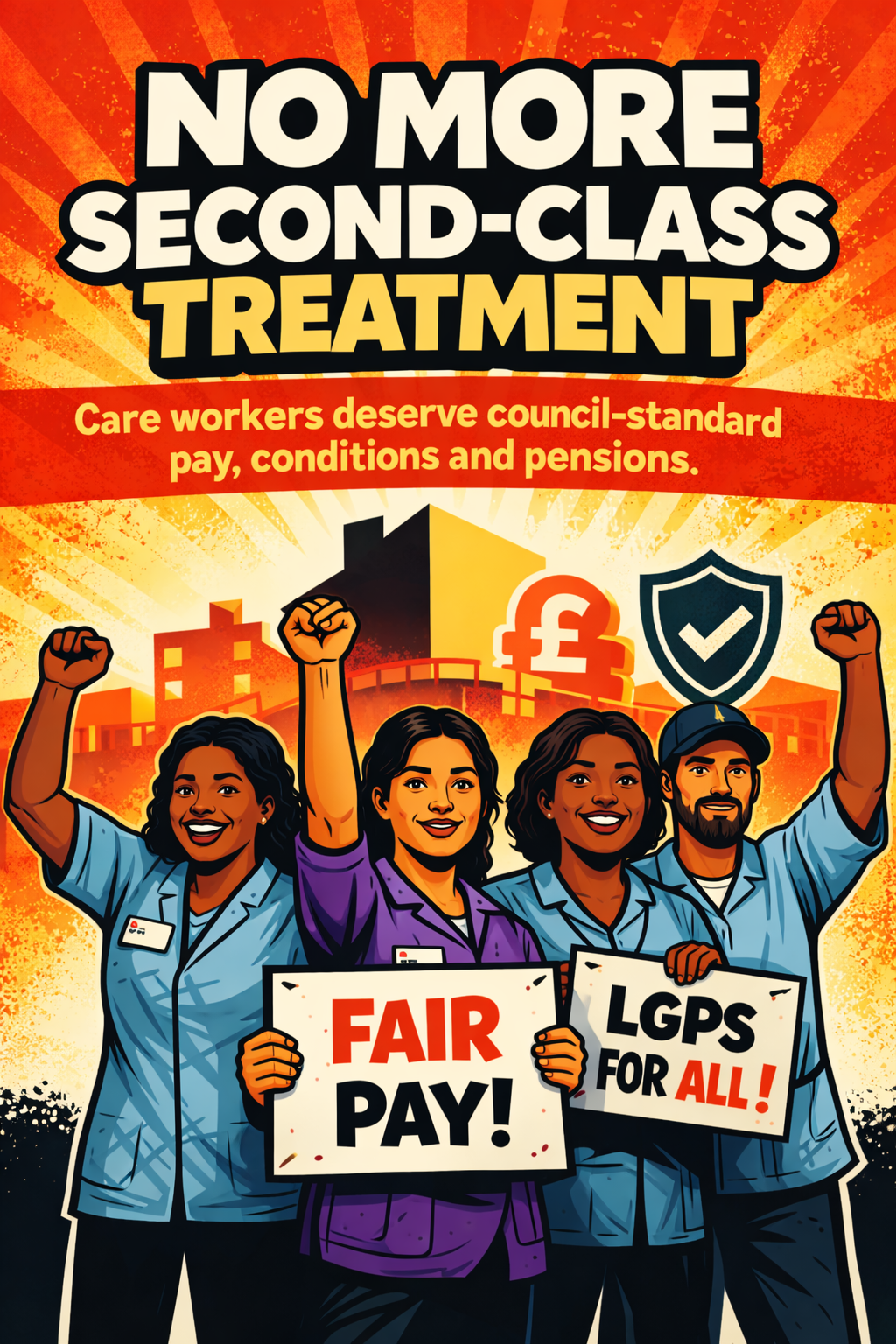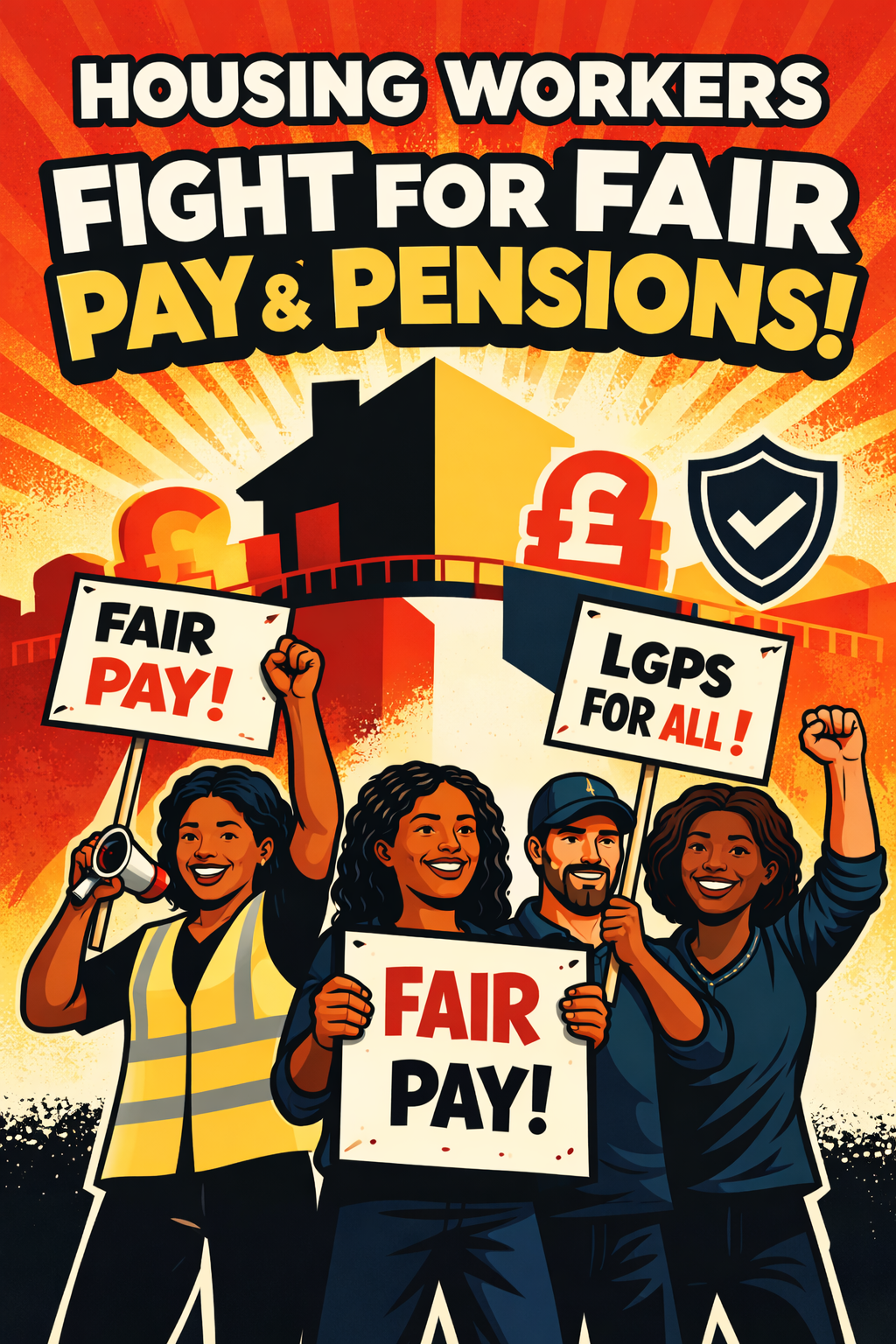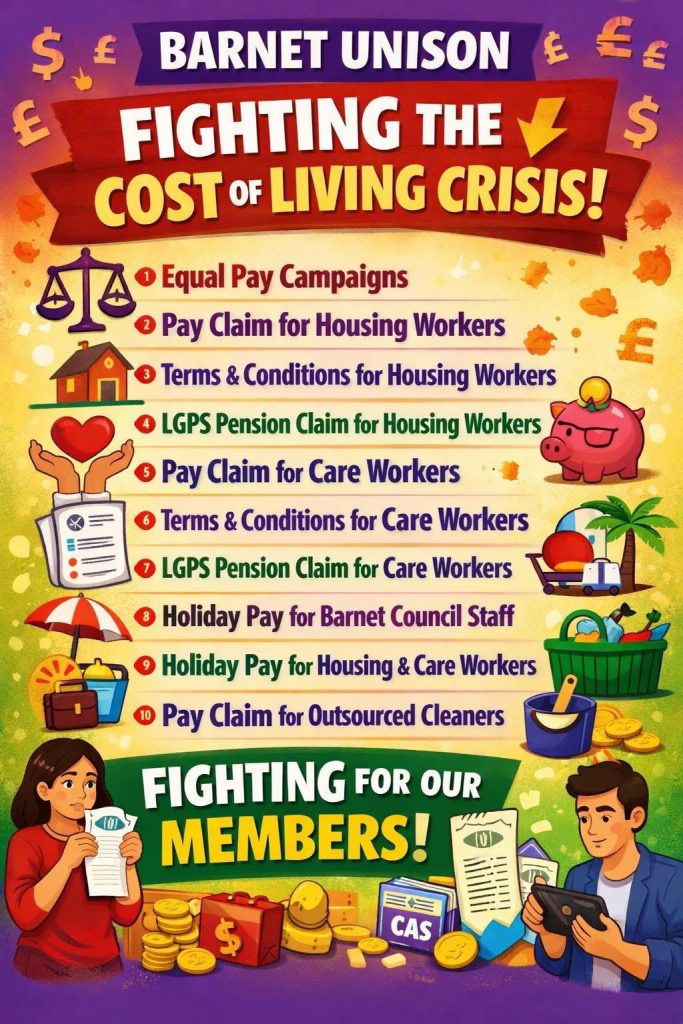
Every week Barnet UNISON speaks to members who are doing essential public service work — and struggling to make ends meet. That should never be normal. Yet in one of the most expensive cities in the world, too many Barnet workers are facing rising rents, higher food bills, increased energy costs, and transport fares that keep going up while pay falls behind.
We are seeing the reality on the ground: members skipping meals, taking second jobs, worrying about heating bills, and telling us they feel worse off now than at any time in their working lives.
Barnet UNISON has not stood back and watched this happen. We have built a coordinated Cost-of-Living response based on organising, bargaining and legal challenge. We are currently running ten separate cost-of-living campaigns across the employers where our members work.
Our 10 Cost of Living Campaigns
1. Equal Pay campaign across three employers
2. Pay claim for housing workers
3. Terms and conditions claim for housing workers
4. LGPS pension claim for housing workers
5. Pay claim for care workers
6. Terms and conditions claim for care workers
7. LGPS pension claim for care workers
8. Holiday payments claim for Barnet Council workers
9. Holiday payments claim for housing and care workers
10. Pay claim for outsourced cleaners
This is one of the most extensive cost-of-living responses our branch has ever mounted. It reflects what members have told us repeatedly: the problem is not one single issue — it is pay, pensions, insecure terms, unpaid entitlements, and historic inequality all combining to squeeze household incomes.
Low Pay in a High-Cost City: The Reality
Low pay is not accidental. It grows when employers hold down wages, delay reviews, outsource services, and maintain unequal pay structures.
Meanwhile, the cost of living in London continues to rise. Housing costs remain among the highest in the country. Inflation over recent years has pushed up the price of everyday essentials. When wages lag behind prices year after year, workers get poorer even while working just as hard — or harder — than before.
That is not sustainable for individuals, for families, or for the services we provide.
What the Union Is Doing — and What Happens Next
Our job as your union is to turn frustration into leverage. That means submitting claims, negotiating firmly, campaigning publicly, using legal routes where appropriate, and — when members support it — preparing for industrial action.
Across all ten campaigns, we are pressing employers to negotiate seriously and settle fairly. Some campaigns focus on immediate pay uplift. Others address structural unfairness that has cost members money over many years. All are about restoring value to your work.
The Most Important Message: Members Decide
There is one point we want to be absolutely clear about:
Members decide.
Ballots matter. Consultations matter. Voting matters. Whether a claim settles, escalates, or moves to the next stage depends on member participation and member votes.
The future of each of these campaigns will not be decided in a boardroom alone — it will be determined by how members vote.
When we organise and vote together, we are strongest.
End.


